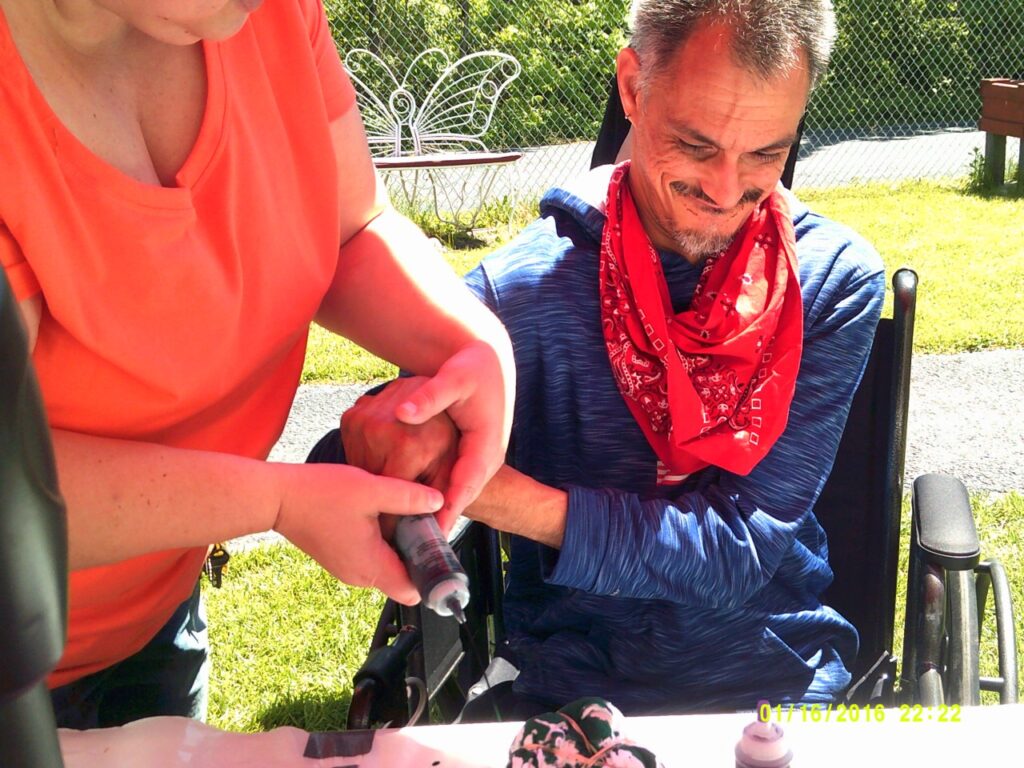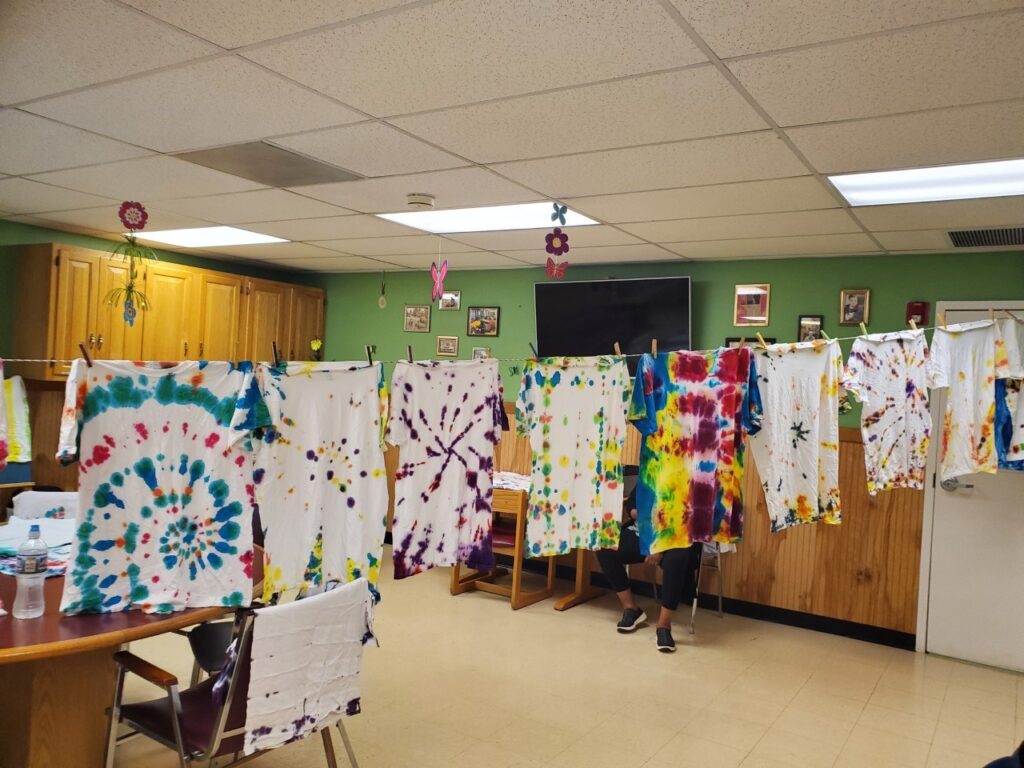
Beginning in January 2019, the Adult Development Training Center (ADTC) has been hosting an Artist-in-Residence Program which has given their individuals the space to be creative.
ADTC was able to fund the Artist-in-Residence Program after receiving a grant of $4,000 from the Edith Tress Charitable Trust. The Southern Allegheny Museum of Art then provided ADTC with a list in which they were able to choose between different artists based on the wants and needs of the clients.
“The Artist-in-Residence Program is meant to open up opportunities for individuals to develop new interests and hopefully inspire them to want to take an art course or maybe learn a new skill like storytelling.”
Jill Spade, ADTC Program Specialist
This program is dependent on interactivity in which artists will bring props and incorporate music so clients have the chance to get involved.
So far, the individuals of ADTC have come to learn about storytelling, dance, and music. Residents were taught about how music is created as well as its importance in culture. More recently, ADTC has had visits from a dancer who has been demonstrating different movements for the individuals. This experience has inspired one individual to show interest in attending dance classes outside of the program.
On May 24, ADTC and its staff held a Day of the Arts for all of the clients of ADTC. Along with the grant money they were provided, ADTC was also given funds to purchase art supplies for whatever activities the clients desired.
There were several activities for the clients like designing a tie-dye T-shirt, painting a canvas, or playing with kinetic sand (for those that are more sensory-oriented).
ADTC staff also organized two community projects. One project consisted of clients painting stepping stones that will create a pathway in the ADTC garden. Clients also had the opportunity to paint and decorate a tile that will be made into a mosaic that represents the community of ADTC.
Spade said that the clients look forward to and have really enjoyed this program.
“The reason this program is so important to our individuals is because it is one of the few times in their lives that they have total freedom. Art does not have boundaries, and art doesn’t have to be structured. Almost every aspect of our individuals’ lives have rules and structure to ensure that a process, or a task, is learned. Art helps fight against intolerance and societal segregation. Our individuals want others to see them as being a part of society and sadly, there are many who still believe that individuals with intellectual and developmental disabilities are incapable.”
Jill Spade, ADTC Program Specialist

